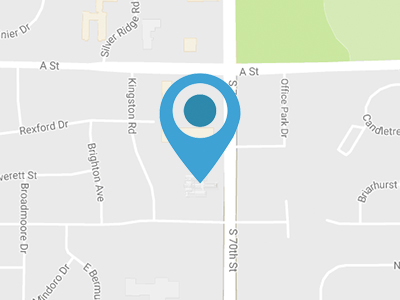by Pastor Harlan Heier
Acts 1:6-8: When they had come together, they asked him, “Lord, will you at this time restore
the kingdom of Israel?” He said to them, “It is not for you to know times and seasons which the Father
has fixed by his own authority. But you shall receive power when the Holy Spirit has come upon you,
and you shall be my witnesses in Jerusalem and in all Judea and Samaria and to the ends of the earth.”
In the days of the Cold War when Germany was a divided nation and the Berlin Wall was still
standing, I read an article in The Lutheran about Christians in East Berlin who decided to talk to their
Communist friends about their faith. In the beginning the Christians tried to meet each criticism of
their faith with logical and persuasive answers and they got nowhere. They continued to talk to their
friends about what life as Christians meant to them and gradually won some to faith. When they
asked the new believers what convinced them, they said, “When you had no answers but still cared
enough to continue to talk to us, we saw how important your faith was to you.” In other words, when
those Christians saw themselves as weak, they were strong.
When I was growing up, we didn’t have a lot of magazines in our home and when The Nebraska
Farmer, Successful Farming, or The Farm Journal arrived, there weren’t many articles I cared to read.
But I would leaf through every issue looking for three things—the “Song of the Lazy Farmer,”
cartoons, and a particular ad. The ad that always caught my attention featured the drawing of a really
tough-looking character. Usually he was pictured in a knit shirt with broad red stripes, his rugged looking
face sprouting several days’ growth of beard, a black mask surrounding his eyes, and a
blackjack sticking out of his pocket. I was anxious to see what he was doing, for he was always doing
something completely incompatible with his tough appearance—daintily smelling a flower, gently
helping a little old lady across the street, or carefully holding the bicycle of a child learning to ride.
The caption was always the same, “Tough, but oh, so gentle!”
That ad reminds us appearances can be deceiving. Those of us who try to be witnesses of a loving
God often appear weak and ineffective. We can’t explain how or why God permits hurtful things to
happen to God’s people. On the other hand, unbelievers appear strong and effective as critics of the
Christian faith. They raise questions that seem to destroy the concept of God as a loving Father.
Even though you and I aren’t always aware of it, even though we may feel like failures, we have behind
us the greatest power on earth, the power of God, the power promised to the disciples by Jesus in
today’s text: “But you shall receive power when the Holy Spirit has come upon you; and you shall be
my witnesses in Jerusalem and in all Judea and Samaria and to the end of the earth.”
The secret of the cross and our witness is power. But it is power different from the power you
and I are used to seeing. Paul was aware of that difference and in the first chapter of I Corinthians he
contrasted the power of God and the power of humans: “For Jews demand signs and Greeks seek
wisdom, but we preach Christ crucified, a stumbling block to Jews and folly to Gentiles, but to those
who are called, both Jews and Gentiles, Christ the power of God and the wisdom of God. For the
foolishness of God is wiser than men, and the weakness of God is stronger than men.” That’s
important to remember. Think how often “weakness” could be written across the life and witness of
the apostles to whom that power was first promised. They didn’t have the power of an education,
the power of an important position, the power of wealth, or the power of social status. In short, they
didn’t have any of the powers you and I count important. The “powers that be” were so sure of the
apostles’ weakness that they were comfortable treating them with scorn—driving them from their
town, persecuting them, imprisoning them, and—according to tradition—putting all but John to
death. Nevertheless, power was with the apostles. They may have been afraid, but they were willing
to suffer anything—even death—that others might hear the good news of God’s love.
“The cross and our witness in power.” What is this strange power? From the evidence in the
story of the East Berlin Christians the power received by witnesses is not a power that overwhelms
nonbelievers with convincing arguments or grabs them by the shirt and shakes faith into them.
Instead, the power Jesus promises is the power to whisper, “God loves you,” when the world is
shouting, “Hate, hate, hate!” It’s the power that continually looks for the most winsome way possible
to present God’s love. It’s the power that loves and cares even when those to whom the witness is
given aren’t particularly loveable. The power Jesus promises is the power to whisper, “I forgive you,”
when the world is shouting, “Revenge, revenge, revenge!” It’s the power that remembers every one
of us is forgiven much more than we’ll ever be asked to forgive. The power Jesus promises is the
power to whisper, “God will see you through,” when the world is shouting, “Give up, give up, give
up!” It’s the power that admits it doesn’t know all the answers, but trusts the God who is always
present. The power Jesus promises is the power to whisper, “God is life,” when the world is shouting,
“Death, death, death!” It’s the power that looks to the fulfillment of the promise of eternal life, a life
where all questions will be answered, all hurts will be healed, and all tears will be dried.
“But you shall receive power when the Holy Spirit has come upon you, and you shall be my
witnesses.” The promise is clear. What do you suppose would happen if you and I really believed
that promise? What do you suppose would happen if you and I saw this verse as an assurance that
we could share the most important thing in our lives with friends who still don’t know the love and
forgiveness of our God? I’m not sure how many of us would suddenly feel comfortable walking into
the house of a friend and saying, “I’m here to talk about my faith.” But I am sure each of us would
find some way to let people know whose side we’re on. I’m sure each of us would find some way in
words or deeds to say to people, “I love you, I care about you, because I know God loves and cares
about both you and me.”
That old advertisement slogan, “Tough, but oh, so gentle,” fits us as we unite around the cross
and witness in power. Critics of the church and of our personal lives can easily, and in many instances,
truthfully, say we are gentle to the point of weakness, when it comes to sharing our Christian faith.
How often we’ve almost talked to someone about God’s love, but instead of relying on prayer and
going on, we’ve turned back. Our own weakness allows us to be driven into a corner, and that’s never
a comfortable place to be. But we have been promised a power, the power of the Holy Spirit, that can
make us “tough” in the best sense of the word, “tough” enough to bring the power of God’s word to
bear in the lives of others.
“But you shall receive power when the Holy Spirit has come upon you, and you shall be my
witnesses in Jerusalem and in all Judea and Samaria and to the end of the earth.” “The cross and our
witness in power.” May you and I seek ways to use that power among our families, our friends, and
even our enemies.

